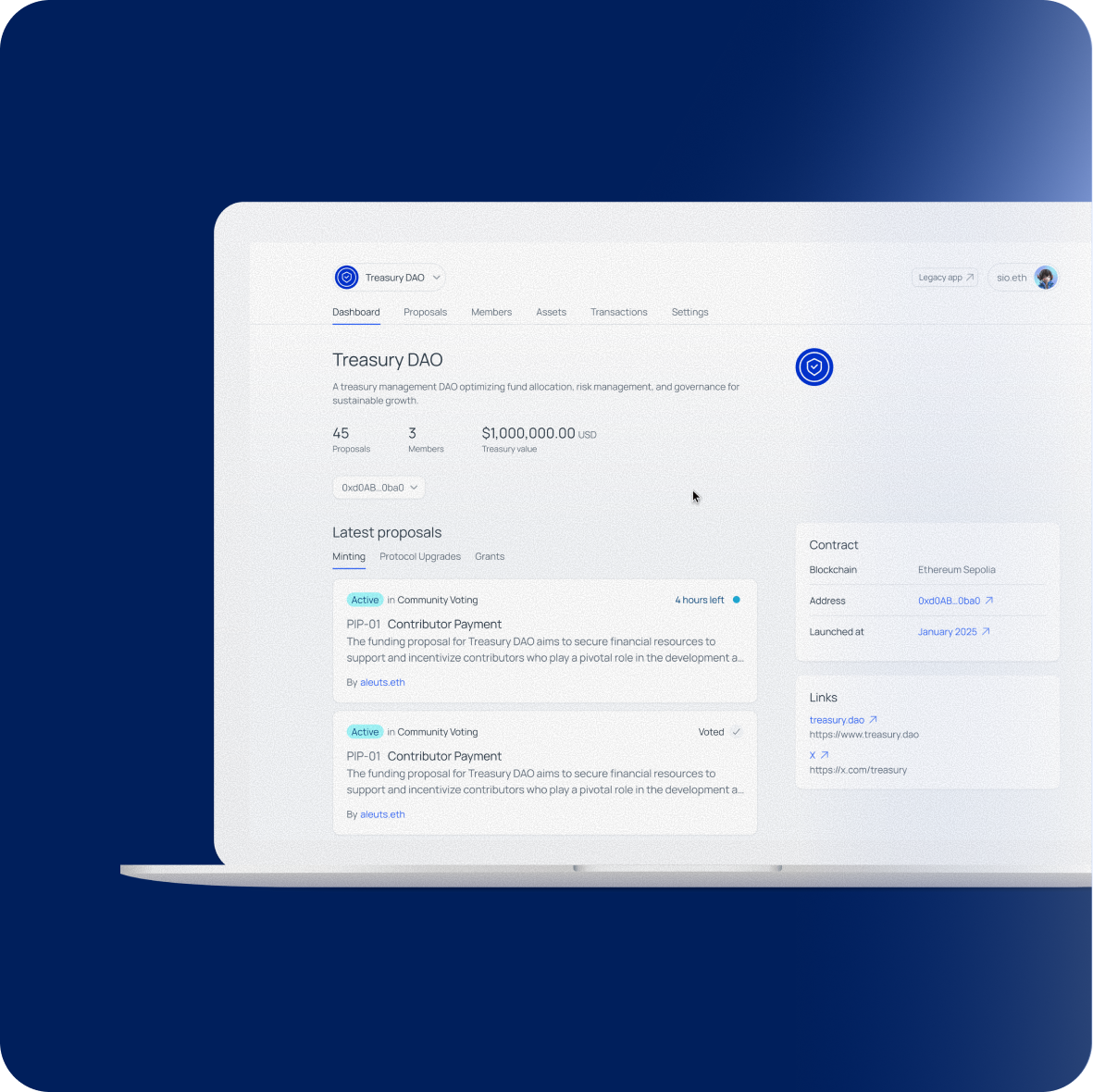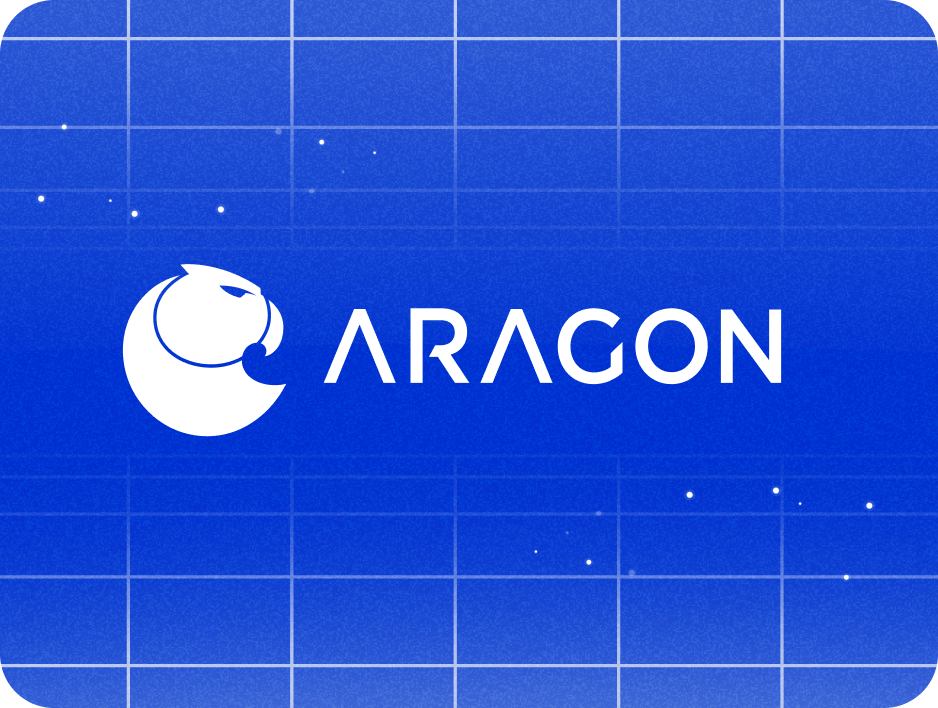Build something
worth owning.
Aragon powers protocols with products and services designed to manage capital allocation, governance, and ownership at scale.
Trusted by


.png)





.png)



Projects launched
10K
Assets governed
$35B
Founded in
2017
Modular by design
Upgrade and evolve without redeployments.
Proven and secure
Audited, battle-tested, and trusted with $35B+.
Built for scale
Powering thousands of organizations across chains.
Bringing everything onchain, effortlessly
Whether you're looking for a no-code hub for governance or a customized approach to launching your token, Aragon's powerful solutions are designed for all projects at all stages.
Platform
The no-code Aragon app enables projects to design and manage governance and ownership fit to their needs, all powered by Aragon OSx.
Services
From advisory to development, let our team of 25+ experts build bespoke governance and tokenomics infrastructure to help your project operate at scale.












